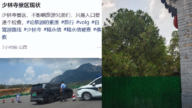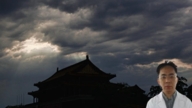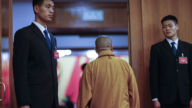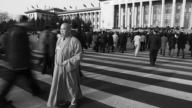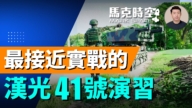【新唐人2011年11月25日讯】中共对“推特”的监控封锁,促使“微博”崛起,也让信息审查的困难度大大的提高。最近,北京当局宣布发起所谓反“错误信息”运动,将收紧对微博网页的监控措施,希望借此控制反对的声音。不过有学者认为,一个负责任的政府应该可以完全面对真相并且理性处理。
11月21号,“中国国家互联网信息”办公室,在武汉举行的"中国网路媒体论坛"上宣布,目前微博注册用户已经超过3亿。越来越多的网民通过微博发泄对政府腐败、丑闻和灾难的愤怒。“甬温动车事故”和“艾未未事件”都是透过这个平台迅速传开。这使得对媒体严厉控制的北京政府感到相当头疼。
“微博”是网民传播信息及各种舆论汇集的地方,更是发表个人看法的一个平台。中外媒体人士一致认为,网上信息交流的活跃,体现了公民的智慧,无疑将促进公民社会发展。然而,三亿中国微博用户,每天数千万条信息在网上迅速流传,对于中共长期以来采取的"防火长城"审查机制,可说是个挑战。
不过,知名评论人陶短房认为,任何社会都有各种各样的杂音,过去的中国社会,这些杂音都被中共媒体给抹杀了,现在只不过突然有个渠道把它反映出来,却被当作是在扰乱社会,他说,抱着僵化思想的人才会认为不同声音是种挑战。
陶短房:“这些想法不是有了微博才有的,他们有民怨,以比如说对房价问题,对物价问题、对腐败问题,那么这种怨气早就有了,有没有微博他都会有,那么现在有一个微博把它表现出来,你有一个互动、一个沟通机会,去把它这个问题去解决、去调整、去互相适应,这是个好事。”
大陆异议作家陈树庆表示,没有微博,民怨还是存在,从微博上大家可以看到事件的真相,一个负责任的政府应该可以完全面对真相,理性的处理。
陈树庆:“真理是在辩论当中愈辩愈明,真相也是在辩论当中互相考证当中愈考愈明,那么微博的话导致真相真理,在辩论当中、在求证当中得到普遍的认可,那么这不是分裂仪式,那是得到认同认识,否则的话,如果没有微博的话,就是谎言的统一。”
海外民运人士王军涛说,本来微博没有反对共产党,只是人民表达意愿的形式,但这与共产党发生冲突,于是共产党对它加以禁止打压。
王军涛:“中共独裁政权它有一个可恶的地方,就是凡是老百姓想按照自己的想法,进行交流信息,或者想讨论一些事情的时候,它都要加以禁止。因为经过这个讨论,会使人民意识到中国至少80%的问题实际上是共产党造成的,人们可能会产生愿望改变共产党政治,所以共产党对微博进行这种封杀,封锁。”
有分析人士认为,当局要想完全压制这种监督政府、和发泄民众怨怒的网路传播管道,是不明智,也是不可能的。
新唐人记者常春、李庭、王明宇采访报导。
China Has Over 300 Million Micro bloggers
The Chinese Communist Party’s (CCP) monitoring and
blockade of Twitter has caused a dramatic rise in the use of micro blogging,
making it harder for the regime to censor information.
Recently, Beijing authorities announced the launch of
its so-called ‘anti-wrong messages’ campaign, which is to
further tighten control measures on micro blogging,
in order to control the entire world of Chinese micro blogging.
Some scholars believe that a responsible government should be
able to fully face the truth and take rational measures.
On November 21, China’s National Internet Information office,
held China’s Internet Media Forum in Wuhan,
and announced that there are currently over 300 million
registered micro bloggers.
More and more Internet users are venting their anger
through the use of micro blogging, voicing their opinions about government corruption, scandals, and disasters.
News of the Yongwen motor car accident and the
case of Ai Weiwei, were quickly spread using this platform.
It’s quite a headache for Beijing,
which has tight control of the media.
Micro blogging is a way of disseminating information and
pooling of all kinds of opinions. It is also a platform to present one’s personal views.
Media people in China and abroad all agree that the active
exchange of information online, reflects the wisdom of citizens,
and will undoubtedly promote the development of civil society.
With over 300 million Chinese micro bloggers sending out
tens of millions of pieces of information on the Internet, every day,
represents a challenge to the CCP’s so-called ‘Great Firewall.’
The well-known critic, Tao Duanfang, said that in any society,
there are a variety of voices.
In the past, the CCP’s media has silenced virtually
every one of them.
Now that these voices have suddenly found a channel to
the rest of humanity, they are being labeled as ‘disturbing the society.’
He said, only rigid, narrow-minded people would think
different voices are challenges.
Tao Duanfang: “These ideas did not come out after micro
blogging came into existence.
People have grievances, say around housing, goods, and
corruption.
These grievances were already there,
therefore they have nothing to do with micro blogging.
Then micro blogging came along and so there is an opportunity
to interact and communicate with others about such issues,
and to solve the problem together,
to adjust and to adapt to each other. This is a good thing."
Chen Shuqing, a dissident writer in China said if there is
no such thing as micro blogging, people’s resentment would still exist.
People can see the truth through micro blogging.
A responsible government should be able to fully face the
truth and take rational measures.
Chen Shuqing: “Truth gets clearer in debating, and in research.
Micro blogging brings issues to the surface where they can be
effectively debated and researched with other people.
Micro blogging helps people reach common ground.
Without it, people would be lost in their own lies."
Wang Juntao, a democracy movement activist,
said micro blogging did not go against the CCP originally,
but it did serve as a platform for people to express their opinions.
However, this conflicts with the CCP’s agenda, so is banned.
Wang Juntao: “The Chinese regime has a nasty character,
that is, whenever people want to follow their own ideas to exchange information,
or discuss something, the CCP will ban them.
Because after this discussion, people will find out at least
80% of the problem is actually caused by the CCP,
so that people may wish to change the communist regime,
so the CCP would ban and block micro blogging."
Some analysts believe that if the CCP authorities want to
completely suppress the watchdog of government,
or the channels to vent peoples’ resentment,
it is unwise and impossible.
NTD reporters Chang Chun, Li Ting and Wang Mingyu



